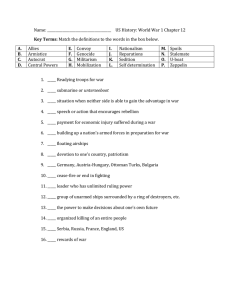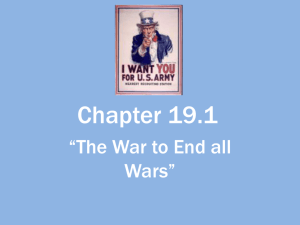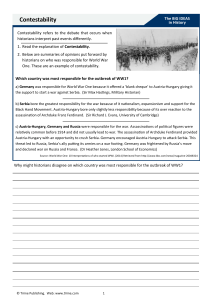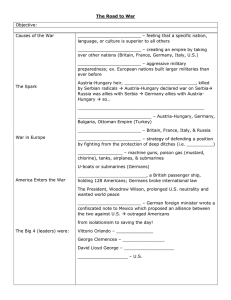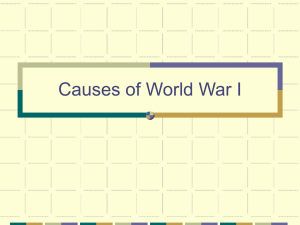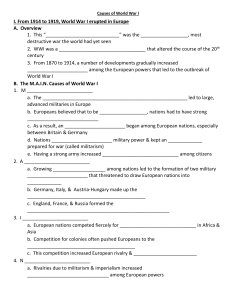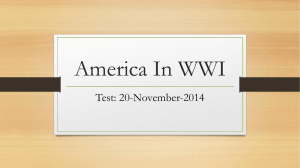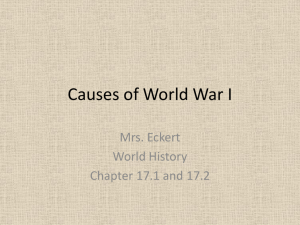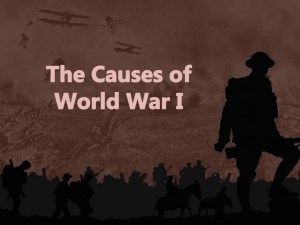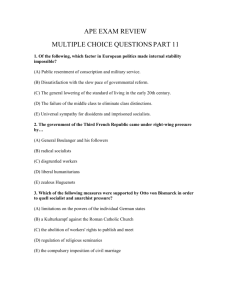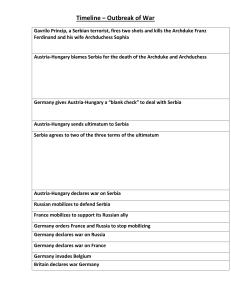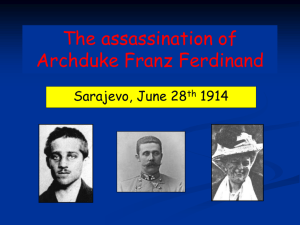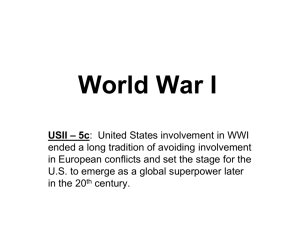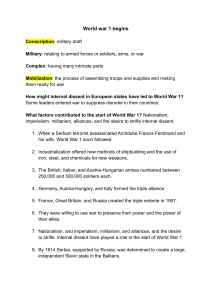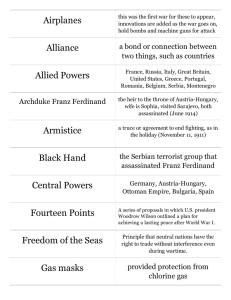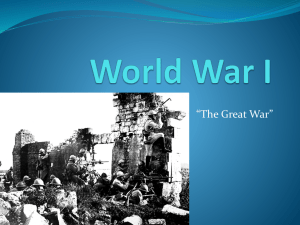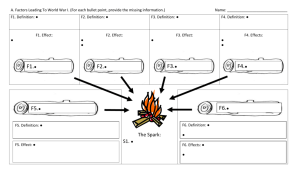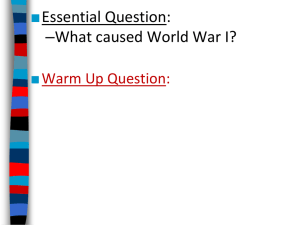Chapter 28-2 Notes - Solon City Schools
advertisement
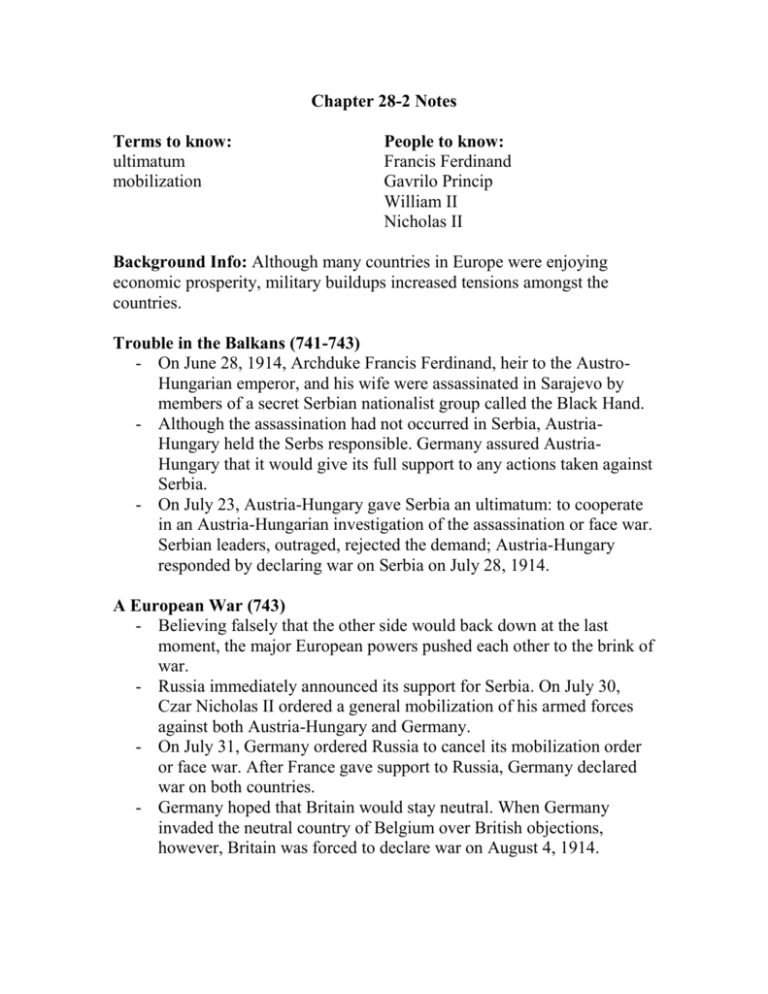
Chapter 28-2 Notes Terms to know: ultimatum mobilization People to know: Francis Ferdinand Gavrilo Princip William II Nicholas II Background Info: Although many countries in Europe were enjoying economic prosperity, military buildups increased tensions amongst the countries. Trouble in the Balkans (741-743) - On June 28, 1914, Archduke Francis Ferdinand, heir to the AustroHungarian emperor, and his wife were assassinated in Sarajevo by members of a secret Serbian nationalist group called the Black Hand. - Although the assassination had not occurred in Serbia, AustriaHungary held the Serbs responsible. Germany assured AustriaHungary that it would give its full support to any actions taken against Serbia. - On July 23, Austria-Hungary gave Serbia an ultimatum: to cooperate in an Austria-Hungarian investigation of the assassination or face war. Serbian leaders, outraged, rejected the demand; Austria-Hungary responded by declaring war on Serbia on July 28, 1914. A European War (743) - Believing falsely that the other side would back down at the last moment, the major European powers pushed each other to the brink of war. - Russia immediately announced its support for Serbia. On July 30, Czar Nicholas II ordered a general mobilization of his armed forces against both Austria-Hungary and Germany. - On July 31, Germany ordered Russia to cancel its mobilization order or face war. After France gave support to Russia, Germany declared war on both countries. - Germany hoped that Britain would stay neutral. When Germany invaded the neutral country of Belgium over British objections, however, Britain was forced to declare war on August 4, 1914.

